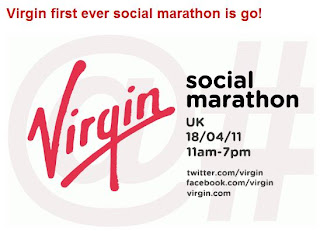Tuesday, 31 January 2012
Hotels collect guest reviews from Facebook
Social media: trends and importance
 |
 |
 |
| source: https://plus.google.com/ |
LUXURY HOTELS: SMS as a direct route to affluent consumers
In its different parts, this article aims to explain why and how luxury marketers and luxury brands and hotels should use SMS messaging to attract and retain more customers.
Knowing the current context of economic crisis keeps consumers from spending money, marketers have to innovate and be more creative. SMS messaging represents a good and effective tool since it cheaper than traditional forms of marketing and directly targets and reaches the customer. Indeed, “research shows that […] 90 percent of all messages written are sent and read within three minutes, with more than 99 percent of all text messages being read by the recipient”.

As previously said, consumers are being more receptive to customized messages received at a relevant time. It offers marketers six advantages: “relevancy”, “actionability”, “immediacy”, “ubiquity”, “simplicity”, and “versatility”.
Indeed, text messages are directly relevant to the customer’s needs and expectations and enable quick responding and dialogue. Moreover, these short messages can reach “over 70 percent of the global population” and enable marketers to communicate about everything.
SMS messaging has other benefits. For instance, it can have consumers going either on-line simply by clicking on a html link sent in the message, or drive them directly in stores to take advantage of the promotion.
However, in order to be efficient and reliable, it is important that SMS messaging contains four elements.
The first one is to have a complete and reliable customer database or a “contact distribution list” brands that hotels can obtain by having consumers to register online or fill-in surveys.
Then, determine the customers’ needs and expectations through their “account histories”. It enables the messages to be sent directly to the targeted customers.
The third step is to create a short, concise and simple SMS message (no longer than 160 characters).
And finally, the fifth element is to measure the impact of the campaign’s success.
The brands who implemented this kind of new marketing campaigns have been successful in noticing increasing sales. Therefore, we can assume that SMS messaging campaigns are effective since mobile devices are universal and immediate communication tools. However, it is essential that marketers keep in mind the various elements that are required for the campaigns to be efficient.
Nevertheless, disadvantage of this kind of marketing is that people might be resilient to fill-in online questionnaires or might just not take the time to complete them correctly. Thus, it could lead to send those consumers text messages that are not well adapted to their needs and expectations. Moreover, some consumers might simply delete the message, thinking it is advertising, without even reading it.
Resource: Hutzler, K. (2012, January). Luxury Hotels: SMS As A Direct Route To Affluent Consumers. Retrieved from Tourism-Review.com: http://www.tourism-review.com/travel-tourism-magazine-marketing-through-sms-reaches-luxury-hotels-article1713
Kayak: iPhone users buy travel online, Android not so much
 |
| Image by: www.eluxurytouch.com |
Know your venues
- It can be planned in a shorter time frame
- Eliminate the costs and hassle of travel and hotel logistics. It has no need to rent a venue, to accommodate the participants
- It allows to having a greater audience. Comparing to traditional meeting, not all the attendees of the digital meeting need to be invited
- It is accessible through numerous electronic devices (computers, mobile phone, tablets) thus from more different places worldwide
- It allows getting more feedback from participants than during traditional meetings. Moderators can perceive if the discussion is going the wrong way more quickly which allow him to be more effective
- Encourage interactions through an online community
- Provide the broadest amount of flexibility, convenience
- Maximize regulatory transparency on the topics
 |
| Image by: Smartmeeting.com |
Determining the mix of venues
Digital Marketing in the Hotel Industry- Twitter as a Marketing Tool for Hoteliers

Source: http://www.tourism-review.com/travel-tourism-magazine.php: tourism-review-magazine-january2012-issue (1).pdf; articles Top Five Items in a Hotel Digital Marketing Strategy and Hotels: Does Twitter Marketing work?, p.16-20.
http://www.freedigitalphotos.net/images/Internet_g170-Follow_Me_p51442.html
 On July, 27th 2012, London will welcome the
summer Olympic and Paralympic Games. Many visitors are expected to come
especially for this event as well as visiting Britain. Besides the National
Tourism Agency estimates around 30,7 millions of visitors in Britain in 2012.
Taking these facts into consideration VisitBritain & Samsung, official
partner of the OG, decided to launch a mobile application for Samsung devices’
users. The main objective is not only to enhance visitors’ experience during
the Games but also on the long term. Indeed more and more smartphone users
utilize their device for travel and tourism purpose.
On July, 27th 2012, London will welcome the
summer Olympic and Paralympic Games. Many visitors are expected to come
especially for this event as well as visiting Britain. Besides the National
Tourism Agency estimates around 30,7 millions of visitors in Britain in 2012.
Taking these facts into consideration VisitBritain & Samsung, official
partner of the OG, decided to launch a mobile application for Samsung devices’
users. The main objective is not only to enhance visitors’ experience during
the Games but also on the long term. Indeed more and more smartphone users
utilize their device for travel and tourism purpose. - Eating & Drinking – Hungry, thirsty, vegetarian, pescatarian, search the best in British cuisine and use the map to direct you straight there.
- Search – Whether it’s the finest British tea or the best place to hire a surfboard, everything is available at the slide of a screen.
- Destination Guide - An in-depth guide to the hundreds of must-see villages, towns and cities around the UK.
- Top 10 – Rely on dozens of Top 10 lists to discover the best shops, restaurants, bars, and explore the very best of your favorite activities.
Monday, 30 January 2012
Online booking system of China railways
Spring Festival holiday began on January 22nd, 2012 in
Today, our focus is ticket reservation system, as it is relevant to online booking system in tourism. Apart from railway station, designated ticket office and travel agency, and after the telephone booking available for High Speed Trains, people now can also buy all train tickets online and by telephone this year. Passengers can buy ticket online with China Railway Customer Service Center (CRCSC) (www.12306.cn) since Jun.1st 2011. Employment of IT in booking and selling tickets largely relieve the load of bricks-and-mortar.
From the year 2012, real-name policy is implemented both in buying train tickets and checking-in.
With valid ID, people can book tickets for 1-10 days advance (1-12 days in advance for 2012 Spring Festival Rush). An e-currency payment service (like PayPal) is a must for purchasing online. Main bank cards stipulated by China UnionPay support the online secure payment.
The pilot project is now practicing in 50 stations includes
The online reservation service is quite necessary nowadays. It is a trend of the world. This new online real-name booking system will relieve the long queues in front of ticket offices and will better the situation of scalpers. However, the majority of the passengers during the Spring Festival Rush are migrant rural workers. They work hard for days and nights all the year round. Few of them ever get good education. The online reservation may not be very practical for them. And the booking system didn’t work very well. It showed up paralysis from time to time. According to staff in network department of CRCSC, there are 100 thousand people booking online per second and the peak second is 5 million people.
Source:
http://www.travelchinaguide.com/china-trains/spring-festival-rush.htm







